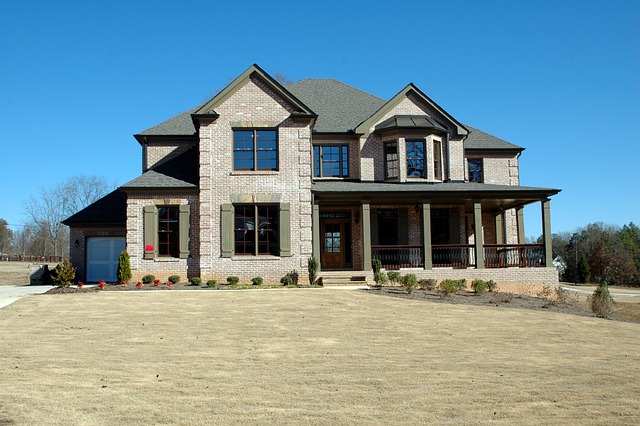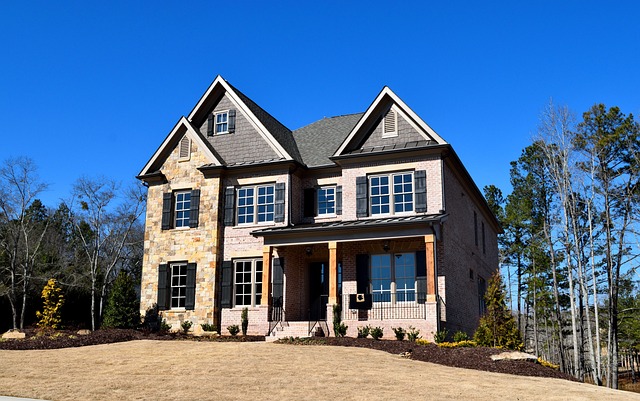When choosing a low-maintenance driveway, consider factors like durability, performance, cost over time, and environmental impact. Concrete and asphalt are popular for their balance of longevity and ease of repair, with concrete offering various finishes and lasting 30 years or more with minimal maintenance. Interlocking pavers made from concrete or stone provide a unique look and superior resistance to frost heave, while permeable paving options, like permeable asphalt or concrete, are advantageous in managing stormwater and require less maintenance due to their environmental benefits. Factors such as local climate and geography influence the driveway's lifespan; hence, it's crucial to consult with local contractors who can guide you towards a choice that fits regional conditions and personal taste. Cost considerations include the initial installation expenses, which may vary based on size, shape, and design, and sustainable options like permeable pavers might have higher upfront costs but can save money in the long run. The decision between professional installation or DIY should be based on the project scale, available resources, and individual expertise. Professional installers ensure a high-quality, long-lasting finish that may require less maintenance over time. Maintaining your driveway's longevity involves regular cleaning to prevent damage, timely repairs for cracks or shifts, and proactive upkeep like sealant applications tailored to the material used. Regular inspections and proper maintenance will help ensure your driveway remains a low-maintenance feature of your home for years to come.
Considering a driveway paving upgrade that minimizes upkeep? This article navigates through the landscape of low-maintenance driveway options, highlighting durable materials and their longevity. We’ll delve into cost considerations, ensuring your investment aligns with your financial plan. Discover the pros and cons of professional installation versus a DIY approach to find the best fit for your project. Finally, we’ll provide essential maintenance tips to maintain your driveway’s integrity over time, keeping it functional and appealing without consuming excess time or resources. Your quest for a resilient, low-maintenance driveway begins here.
- Evaluating Low-Maintenance Driveway Options: Materials and Longevity
- Cost Considerations for Your Low-Maintenance Driveway Project
- Professional Installation vs. DIY: The Right Approach for Your Driveway
- Maintaining Your Low-Maintenance Driveway: Tips for Long-Term Durability
Evaluating Low-Maintenance Driveway Options: Materials and Longevity

When considering low-maintenance driveway options, it’s crucial to evaluate materials not just for their immediate appeal but also for their long-term performance and durability. Concrete and asphalt are traditional choices that offer a balance between cost, longevity, and ease of repair. Concrete, with its variety of finishes from smooth to textured, can last upwards of 30 years with minimal maintenance, making it a popular choice for those seeking durability without frequent upkeep. On the other hand, interlocking pavers made from concrete or natural stone provide a unique aesthetic while offering superior resistance to frost heave and settlement, potentially lasting even longer when properly installed and maintained.
In addition to materials, the climate and geographic location play significant roles in determining the longevity and suitability of your driveway. For instance, areas with extreme temperature changes may benefit from permeable paving options that can accommodate water expansion and contraction without cracking. Homeowners should also consider the environmental impact and sustainability of materials; options like permeable asphalt or concrete allow for better stormwater management and reduce the need for sealcoating, further lowering maintenance requirements over time. It’s important to consult with local contractors who can provide insights into the best low-maintenance driveway solutions tailored to your specific regional conditions and personal preferences.
Cost Considerations for Your Low-Maintenance Driveway Project

When considering a low-maintenance driveway, cost is a critical factor that homeowners must evaluate. The initial investment for materials such as concrete, asphalt, or permeable pavers varies, with concrete typically offering the most cost-effective solution upfront. However, factors like size, shape, and design can significantly influence the total cost. It’s advisable to obtain multiple estimates from contractors to compare prices and services. Additionally, while the long-term maintenance costs for concrete are relatively low, considering the durability and resistance to harsh weather conditions, one must also account for potential sealing or resurfacing every few years to maintain its appearance and functionality.
Furthermore, eco-friendly options like permeable pavers may have a higher initial cost but offer long-term savings by reducing water runoff issues and potentially lowering maintenance expenses. They also contribute to sustainable land use practices. The choice between these options should be weighed against the intended use of the driveway, local climate conditions, and budget constraints. Homeowners should also consider the longevity of the materials and any potential tax incentives for environmentally friendly choices when calculating the long-term cost of their low-maintenance driveway project.
Professional Installation vs. DIY: The Right Approach for Your Driveway

When considering a new driveway, homeowners face the decision of whether to opt for professional installation or to undertake a do-it-yourself (DIY) project. The choice hinges on several factors, including the scale of the project, available resources, and expertise in paving. Professional installers bring a level of precision and experience that can be critical for driveway longevity and safety. They are adept at preparing the site, ensuring proper drainage to prevent water damage, and applying materials with skill to achieve a durable, flat surface. This expertise often results in a cleaner, longer-lasting finish compared to a DIY attempt, which can save time and resources in the long run.
On the other hand, a DIY approach might be more appealing for those looking to save costs or take on a new challenge. However, it’s important to assess one’s skills and access to professional-grade tools and materials. Many driveway paving options, such as concrete, interlocking pavers, or asphalt, require specialized knowledge and equipment to install correctly. For example, laying pavers requires precise measurement and leveling to avoid trip hazards and ensure the pavers sit firmly against each other for a uniform appearance. Additionally, proper base preparation is crucial for the longevity of any driveway surface, and this step can be particularly challenging for those without prior experience in paving projects. Ultimately, whether you choose professional installation or a DIY project, the key to a low-maintenance driveway lies in careful planning and attention to detail throughout the process.
Maintaining Your Low-Maintenance Driveway: Tips for Long-Term Durability

Regular cleaning is a key component in maintaining your low-maintenance driveway’s durability. Sweep or blow debris such as leaves and grass clippings regularly to prevent organic matter from breaking down and causing stains. Use a hose with a gentle stream to wash away dirt and grime, ensuring water runs off the driveway and doesn’t pool, which can lead to erosion or damage to the paving material. For stain removal, spot clean with a solution of mild detergent and water, being careful not to saturate the area as excessive moisture can compromise certain low-maintenance materials like permeable pavers or concrete over time.
When it comes to repairs, addressing issues promptly is essential for long-term durability. If you notice any cracks or shifts in the pavement, address them immediately with a repair kit suitable for your driveway’s material. Regularly inspecting the driveway can help catch minor damages before they become major problems. Additionally, consider using sealants designed for your specific paving material to protect against oil spills, chemical stains, and weather damage, which can extend the life of your low-maintenance driveway significantly. By following these maintenance practices, you can ensure that your driveway remains functional and aesthetically pleasing for years to come.
When considering a low-maintenance driveway, homeowners have a variety of paving options that offer durability and longevity while minimizing upkeep. This article has explored the cost implications, installation methods, and maintenance tips for ensuring your driveway remains functional and appealing over time. Homeowners can make informed decisions by evaluating the different materials available and understanding the long-term investment required for a low-maintenance driveway. Whether opting for professional installation or tackling the project yourself, the key to success lies in selecting the right material and approach that suits your needs and budget. Regular maintenance, as outlined in our tips section, will further protect your investment and preserve the driveway’s performance and appearance. By carefully considering these aspects, you can enjoy a durable, low-maintenance driveway for years to come.
